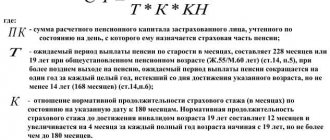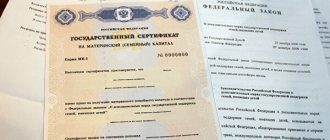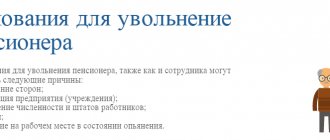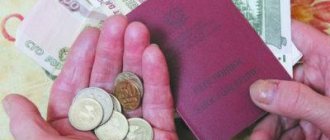Update date: 12/15/2019 To see off the deceased on his last journey, you should know that at the moment the government pays part of the funeral costs for many categories of citizens, and some can be buried entirely at the expense of the state.
Relatives of the categories of citizens listed below can receive benefits in full if the deceased lived in the capital and had Moscow registration.
Compensation for burial is paid:
- unemployed citizens officially registered as unemployed;
- pensioners;
- participants of the Great Patriotic War;
- home front workers;
- disabled children and disabled people of the first, second and third groups;
- persons liquidating the accident at the Chernobyl nuclear power plant and its consequences;
- parents whose child has died;
- unreasonably repressed citizens.
Relatives of the above-mentioned citizens can receive a funeral benefit in full if the deceased lived in the capital and had Moscow registration. Additional funeral benefits are paid by the Moscow government.
Funeral benefit - what is it in simple words
A funeral benefit is a lump sum paid by an employer or government to cover the cost of burying a deceased person. The intended use of money is not tracked, since it most often compensates for costs already incurred.
By the way, not only relatives or legal representatives, but also any people who have taken on the burden of paying for the funeral of the deceased can handle funerals and reimburse their expenses.
Are death benefits and funeral benefits the same thing?
The legislation does not distinguish between these concepts, because it only contains the term “social benefit for funeral”. In colloquial speech, a death benefit for a relative is often used, which can be understood as all payments received posthumously.
Funeral benefits are issued solely to compensate for expenses incurred in arranging a funeral. The death benefit may also include:
- unpaid wages of the deceased;
- the deceased's pension, which he was unable to receive;
- insurance amounts;
- regional compensation for funerals.
Thus, legally the concepts do not differ in any way and funeral benefits must be understood as funds issued for funerals.
What law governs
The payment of funeral benefits is described in the Law “On Burial and Funeral Affairs” No. 8-FZ, dated January 12, 1996. It stipulates:
- categories of people entitled to payment;
- procedure for obtaining benefits;
- deadlines for issuing money and other issues.
There are also regional benefits regulated by local regulations. For example, in Moscow this is Government Decree No. 514-PP dated November 1, 2011. In accordance with it, an additional payment of 11,000 rubles is assigned.
When can I get it?
Clause 2 Art. 10 No. 8-FZ provides for the need to issue funeral benefits at the time of applying for it. That is, if a relative applied for payment on February 10, 2020, provided all the necessary documents, then the required funds should be given to him on the same day.
The maximum deadlines for applying for payment are indicated in paragraph 3 of Art. 10 No. 8-FZ. The benefit must be applied for no later than 6 months from the date of death. If a person died on February 5, 2020, then he can receive the payment until August 5 of the same year. Otherwise, the applicant will be denied funds.
Who is entitled to funeral benefits?
Funeral benefits are available to relatives of three categories of deceased:
- Pensioners.
- Military personnel.
- Officially employed persons.
Each of the categories should be considered in more detail. They have their own nuances that affect the circumstances of the payment and its size.
Pensioners
Pensioners are considered people who have reached retirement age (in 2019, 61 years and 56 years for men and women, respectively, until 2028 it will gradually increase to 65/60 years) and are on state support. They can live purely on social benefits, or they can continue to work, in which case the mechanism for claiming funeral benefits is different. In the first case, payment for the funeral is requested from the Pension Fund, in the second - from the employer. The state guarantees this assistance if the funeral of the pensioner is provided by another person.
Military personnel
If the deceased is a military serviceman, then you need to keep in mind that these are not only people who serve in the armed forces and have a military profession. Also included in this category are:
- called up for military training;
- firefighters;
- employed in the structure of the Ministry of Internal Affairs;
- customs officers;
- FSIN employees.
If an employee dies, all expenses are borne by the state. Expenses mean:
Survivor's pension - who is entitled to it, the amount and how to get it + answers to readers' questions
- paperwork;
- transportation to the morgue;
- morgue services;
- provision and delivery of funeral accessories;
- burial of the deceased (including his delivery to the burial place);
- cremation of the deceased (including his delivery to the cremation site).
This applies not only to active employees and military retirees, but also to WWII veterans. Relatives or acquaintances must only inform the military registration and enlistment office or other authority about the death of a serviceman. If the burial has already been carried out by relatives, compensation is due, otherwise the burial will be organized by the Ministry of Defense.
If the deceased belonged to one of these categories, then he is entitled to an honorary funeral:
- had at least 20 years of service in the Armed Forces or Navy of the Russian Federation;
- awarded the titles Hero of the Soviet Union or Hero of the Russian Federation;
- was a full holder of the Order of Glory;
- was a participant in wars and a combat veteran;
- held government positions in the Russian Federation;
- had certain services to the Motherland.
In these cases, there will definitely be mourners at the funeral: orchestra, escort, outfit, guard.
For residents of Moscow and St. Petersburg, the maximum amount of compensation for a military funeral cannot exceed 27,016 rubles; in other regions it cannot exceed 19,511 rubles.
Relatives of a deceased military man can also receive compensation for the costs of installing a tombstone. Its amount cannot be more than 33,721 rubles.
Officially working
If a person was employed at the time of death, the payment is made through the Social Insurance Fund (FSS). This is where contributions were paid on behalf of the employee, so the actual burial would be paid for through the deceased's regular payments. It is enough to contact the employer to receive the amount stipulated by law; we will talk about this further.
Difference between benefits for pensioners and working citizens
Pensioners who are not employed are offered a basic benefit of RUB 6,124, which increases based on the regional coefficient. The local level sometimes offers its own transfers for non-working senior citizens. For example, people with permanent registration in Moscow can apply for an additional payment of 11,616 rubles.
If the deceased worked, then benefits are paid through the Social Insurance Fund, and relatives will have to contact the employer . The payment amount is also 6,124 rubles, but sometimes company managers increase compensation at their own expense.
If a citizen did not work, but received a disability pension, then payments are offered by PF employees. If a person was not officially employed, then money is allocated from social security.
Types of benefits
Funeral benefits vary and depend on the category to which the deceased belonged.
Upon the death of a serviceman
More funds are allocated for burials for military personnel. You can receive an increased benefit if at the time of death the person was serving in the armed forces, that is, he actually died in the line of duty. Money is also provided for the funerals of persons officially considered veterans and military pensioners.
The family of the deceased employee of the State Fire Service is entitled to:
- Compensation for funeral expenses.
- Compensation for the installation of a tombstone.
Payments and compensation are due if the firefighter:
- died in the line of duty;
- the deceased died due to injury, injury or illness received in the performance of official duties (provided that he died within a year after his dismissal from service in the Ministry of Emergency Situations).
The expenses of the person who incurred the costs of the funeral and installation of the tombstone are compensated. To do this, you will need to provide supporting documents (receipts, certificates of work performed). For residents of Moscow and St. Petersburg, the maximum amount of compensation cannot exceed 27,016 rubles; in other regions it cannot exceed 19,511 rubles.
The following types of services can be reimbursed:
- paperwork;
- transporting the body to the morgue;
- morgue services;
- supply of funeral accessories;
- burial of the deceased (including transportation of the body to the burial place);
- cremation of the deceased (including transportation of the body to the cremation site).
Relatives of a deceased firefighter can also compensate for the costs of making and installing a tombstone, but not more than 33,721 rubles.
Similar rules, amounts and procedures are prescribed for receiving compensation by the relatives of an employee of the Ministry of Internal Affairs who died while on duty.
Regional one-time payments
Regions may establish additional payments to provide for funerals. Their size depends on the budget capabilities of each entity. Specific amounts will be discussed in the next section.
Financial assistance to relatives from the employer
As already mentioned, for the funeral of officially employed persons, compensation can be requested from the employer. For those who work officially, but part-time, compensation is also provided. The money comes from the Social Insurance Fund, but some companies also have trade unions that can pay relatives a certain amount for funeral expenses.
Payment amount
The funeral benefit is a fixed amount, so the state offers the same payment in all regions. It is 6,124 rubles, but the regional coefficient is additionally taken into account. Its size is set by local authorities based on the subsistence level. With its help, an increase in federal payments is ensured.
Sometimes constituent entities of the Russian Federation will assign their own compensation for burial, but they are often offered only to vulnerable categories of the population or persons with some kind of official status. For example, funds are often given to disabled people, pensioners or military personnel.
Money is issued exclusively to persons who have payment documents proving funeral expenses . The federal benefit is calculated based on the minimum payment for funeral services. Payments are regularly indexed due to rising inflation. The cost of the guaranteed set is calculated by the municipal authorities.
In many regions, regulations are adopted, on the basis of which the amount issued is increased. For this purpose, special regional coefficients are used. Typically, increases are offered in northern or hard-to-reach regions.
Attention! A complete list of coefficients used in calculating benefits is located on the official website of the Social Insurance Fund, with values ranging from 1.2 to 2.
Sometimes regional authorities pay their own benefits, for which the financial condition of the region is taken into account. Relatives involved in funerals can find out about the possibility of receiving additional payments by contacting representatives of the regional administration.
For example, in Volgograd one-time assistance is offered, for which the funeral organizers receive 1 thousand rubles, but only if the family of the deceased is officially recognized as poor.
Funeral benefit amount
Depending on the region in which the deceased was registered, different amounts are awarded for his burial. They pay the most in Moscow, which is due to the strong economy and general standard of living. In the regions you should not hope for large compensation; many simply do not provide additional payments.
The federal funeral benefit is indexed annually and from February 1, 2020 its amount is 5,946 rubles.
In Moscow
In Moscow, there is an additional payment to the standard 5946 rubles in the amount of 11,000 rubles and it is provided if:
- the deceased was unemployed;
- the deceased was a non-working pensioner;
- a dead child born after 154 days of pregnancy is buried. Please note: he did not live 154 days, but was born starting from the 154th day of pregnancy. By law, he is already a person. Until 154 days of pregnancy, the child is a fetus, an embryo, and nothing is due for its loss.
The total benefit amount in Moscow is 16,946 rubles, but there are other options. For those who died and were injured during the accident at the Chernobyl nuclear power plant or the Mayak production association, the federal payment is simply increased to the level of 11,948 rubles. The burial of military personnel is compensated based on actual costs, in an amount not exceeding 27,016 rubles.
For the burial of military pensioners, a benefit is issued in the amount of three months' pension of the deceased. The wives/husbands of deceased military pensioners are also paid a one-time benefit in the amount of a monthly pension.
In the regions
In addition to Moscow, additional financial assistance can be obtained in some other regions. To do this, local regulations must be adopted establishing the procedure for receiving payment and its amount. Currently there are surcharges in the following cities:
- St. Petersburg - 7,610 rubles;
- Novosibirsk - 1,055 rubles;
- Ufa - 791 rubles.
In most other cities there is no additional benefit at all, since the local budget cannot afford it.
Payment of two pensions after the death of a pensioner
Relatives of a deceased pensioner can receive a one-time payment in the amount of two of his pensions. This is a mandatory benefit provided for by law. However, before collecting documents, you need to understand the intricacies of obtaining funds.
Who is entitled to payments?
To receive a one-time payment in the amount of two pensions of the deceased, a citizen must meet the following criteria:
- be closely related to the deceased;
- live together with the pensioner until his death;
- be a dependent of the deceased (this applies to minor children or elderly parents).
How and where to receive a funeral benefit - step-by-step instructions for applying for benefits
To receive a funeral benefit, you must contact one of the following government agencies or your place of work within six months from the date of death of your relative. If the deadlines are missed, they will not be restored and compensation will not be provided. When submitting a complete package of documents, benefits are paid the next day. Therefore, even if a person died and his relatives or representatives want to bury him at the expense of the benefit, they can collect all the documents and receive payment the very next day.
The application procedure in each case has slight differences and the registration process should be considered step by step.
Pension Fund (PFR)
The pension fund issues payments to compensate for the funerals of non-working pensioners, as well as members of tribal communities of indigenous peoples of the north. You should contact the department to which the deceased was assigned, and only relatives have this right.
Step by step guide:
- Bury the deceased and obtain a death certificate.
- Provide the pension fund with a package of documents (more on them later) and an application.
- Receive money on your card or at the post office within the established time frame.
Social protection
Relatives who have buried contact the social security authorities:
- non-pensioners;
- unemployed;
- stillborn children at gestational age of 154 days or more.
The registration procedure is the same as in the case of the Pension Fund, in addition, it is possible to compensate for the funeral of a foreigner. If he died while visiting relatives and they decided to bury him in his hometown, an application can also be submitted.
How to get compensation at work
Contacting the employer is required only if the deceased was officially employed, or the employee’s minor child died. Recipients of the benefit are relatives, legal representatives of the deceased, or employees of the organization, that is, people involved in the funeral.
Registration is done by submitting an application addressed to the boss, the company pays money according to it, after which it receives a refund from the Social Insurance Fund. If benefits are provided for by a collective agreement or trade union, they are paid separately from the basic amount.
Social Insurance Fund
Through the Social Insurance Fund, funeral benefits can be obtained in a limited list of situations. Typically, this organization pays funds through the employer as an intermediary, but there are policyholders who are not employed by companies, for example, individual entrepreneurs or individuals who voluntarily made contributions to the Social Insurance Fund on their own. They are the ones who can request payment directly, including in the event of the death of a minor, for example, their child.
Military registration and enlistment office
As mentioned above, in the event of the death of military personnel, which also includes firefighters, customs officers, police officers and employees of the Federal Penitentiary Service, increased benefits are paid to their relatives. Documents confirming the fact of death and funeral expenses are submitted by the relatives of the deceased or representatives to the military registration and enlistment office at the place of residence of the deceased. Also, through these institutions, WWII participants and home front workers are buried, if these statuses are confirmed.
Who bears the funeral costs?
The circle of heirs of the testator is established by law, with supporting documents. After the heirs have accepted the inheritance, they are presented with all expenses, and until the acceptance of the inheritance, the expenses are presented to the executor of the testator's will. Heirs can also pay for the funeral with funds that they accepted as an inheritance (for example, a current account or a cash deposit in the testator's bank). The heirs can withdraw this money for the funeral before the expiration of six months from the date of opening of the inheritance and no more than one hundred thousand rubles.
Useful : read how to register an inheritance in another city using the link
A person who is himself an heir, who paid for the funeral on his own, can recover money from other heirs, if any, and also if this person is not an heir, but spent money on the funeral (for example, neighbors who do not have any family ties with the deceased ). To recover expenses from heirs, you must have documentary evidence of these expenses, these could be:
- Receipts (for example, wreaths, coffins, clothing purchases);
- Receipts (for example, payment for inheritance protection services, transportation of the deceased to the burial place);
- A contract or agreement for the provision of medical services (for example, treatment before the death of a person in a paid medical organization);
If there are heirs, then based on the above, with the help of supporting documents, you can demand compensation from the heirs by presenting them with evidence. The heirs will be required to reimburse the costs.
If no heirs have been identified, then the person who paid for the funeral must contact the notary at the place of residence of the deceased person, providing a certificate of death and information about the citizen’s place of residence. Based on the documents provided, the notary must issue a document to the person for the issuance of funds to reimburse the expenses incurred. Based on this document, a person can receive monetary compensation at a bank branch or at the Pension Fund of the Russian Federation.
Funeral expenses may also be borne by the state on the basis of burial legislation. In addition to social benefits (funeral compensation), you can receive services from the state. The list of services provided to the person who bury the deceased free of charge:
- Preparation of documents;
- Transportation of the deceased body to the cemetery;
- Burial;
- Provision and delivery of a coffin, as well as other items necessary for burial;
All of the above services are provided by specialized funeral homes, which are paid for from the budgets of the Russian Federation. Payment to the funeral home is made no later than six months from the date of burial of the deceased.
ADVICE FROM A LAWYER : watch the video on registering an inheritance and ask your question in the comments of the video to get a free answer from a lawyer
Required documents to receive funeral benefits
List of documents required to receive payment for a funeral:
- statement on behalf of the representative;
- applicant's passport;
- death certificate;
- a certificate stating that the deceased was registered (you can take an extract from the house register from the management company or HOA, or request such a certificate from the MFC);
- documents on kinship: marriage certificate, birth or adoption certificate (if compensation is due only to relatives);
- work book (to confirm employment);
- financial documents on expenses incurred: receipts, consumables, certificates of work performed.
If you apply for benefits before the funeral, then the required fixed amount is paid (5946 rubles in the general order). If you applied for funeral benefits within 6 months after the funeral, the amount will be paid according to the checks provided, but not more than the amount guaranteed by the state (5946 rubles in the general order).
An important point: if the deceased has an unpaid pension or money left in his book, then the funeral organizer (whether a relative or not) can contact a notary, who will send a request to the bank and the funeral costs will be reimbursed from the deceased’s funds.
Who can receive payments
Another financial help for the family of a deceased pensioner is the unpaid pension.
To receive it, you must contact the Pension Fund with a corresponding application within 6 months from the date of death of the pensioner. Close relatives who lived with the deceased can receive the unpaid pension of the deceased. The following categories of relatives may qualify for payment:
- Spouse;
- Children;
- Grandchildren;
- Brothers or sisters.
Read also: Actual acceptance of inheritance
If there are several close relatives living with the pensioner, the payment is divided equally between them. The pension accrued for the last month of the deceased’s life, which he did not manage to receive, is subject to transfer.
Note: the unpaid part of the insurance pension is not considered an inheritance.
If the insurance part terminates after the death of the beneficiary and does not pass to his family members, then the accumulative part of the savings can be inherited by close relatives. A citizen who has formed a funded pension can indicate this type of payment in the will of the legal successor. If there is no will, it is divided equally among all heirs.
You cannot receive a funded pension by inheritance if during the life of the pensioner it was assigned to him indefinitely. You can apply for the transfer of accumulated savings in the following cases:
- The citizen died before her appointment;
- The pensioner applied for a lump sum payment from the funded part, but did not manage to receive it;
- The pensioner issued an urgent transfer, which was not carried out due to his death.
Important: if the deceased managed to receive part of the funded pension, then the heirs can receive the remaining share of the savings.
What is social burial
Social burial is a limited list of services provided by the state free of charge. The list of services includes:
- coffin upholstered with fabric, slippers, blanket;
- transportation of the deceased in a hearse to the burial place;
- digging a grave;
- installation of a registration plate with the name of the deceased and years of life (the cross and plaque are not included in the price);
- cremation and delivery of an urn with ashes.
The monument, decorations for the grave, even the mound of the grave are not included in the social package. Therefore, if you want to bury it with dignity, you will need to spend extra money.
The only additional service is the installation of a tombstone costing 3,200 for deceased disabled pensioners.
How to arrange a social (free) funeral
Free funerals are offered to officially unemployed people, pensioners or stillborn children. If the deceased was unemployed, then relatives or proxies need to provide social security with the deceased’s work book or a certificate from the employment service. You should also obtain a death certificate and contact the city funeral service. Employees will draw up an act for a social funeral and provide a guaranteed list of services, which does not include all the actions provided for by religious canons.
There is no money for a funeral, where to go?
If there is no money at all for the funeral or there is no opportunity to come to organize the funeral, or the deceased has no relatives, then, according to Article 12 of the Law “On Burial and Funeral Affairs,” a specialized funeral service takes over the burial responsibilities. Here's what their responsibilities include:
- preparation of documents necessary for burial;
- vestment of the body;
- provision of a coffin;
- transportation of the deceased to the cemetery (crematorium);
- burial.
First, the internal affairs bodies must find out the identity of the deceased, after which, within 3 days from the moment the cause of death is established, the special service carries out its functions. If the identity is not established, then burial can take up to several months.
You can find out which organization performs the role of a specialized service in the administration of the locality. Usually a Resolution with the necessary information is published on the website. Example:
By law, every citizen is provided with a free burial place. But there is a nuance here - a specialized funeral service only works with unclaimed bodies . In order for the body to become unclaimed, you must either write a refusal statement or simply not pick up the body from the morgue for 7 days. The corpses of homeless people most often become unclaimed, as well as the bodies of those who were found without documents and could not be identified, for example, a person left for another region to work, he was robbed, his personal belongings were taken and his life was taken.
However, an unclaimed body can lie in the morgue for several months, or even a year. In January and February 2020, unclaimed bodies in Moscow could not be buried due to the fact that not a single funeral home submitted an application for an auction from the Bureau of Forensic Medicine, which significantly reduced the cost of one burial under the contract. In 2016–2017, the cost of one burial cost the Bureau 10.7 thousand rubles, in 2018 - 12.8 thousand rubles, and in 2020 only 6.6 thousand rubles. (calculated by RBC based on data from the government procurement website). It becomes unprofitable for funeral services to deal with unclaimed bodies.
Depending on the region, unclaimed bodies are buried differently. Somewhere, a separate grave, a simple coffin, is allocated for each body. Somewhere they can bury several bodies in one common grave, but somewhere they cremate them.
This is what a cemetery plot with unclaimed bodies in Moscow looks like. Each grave is assigned a number, and if the person’s identity is eventually established, then his body can be found and exhumed using the number:
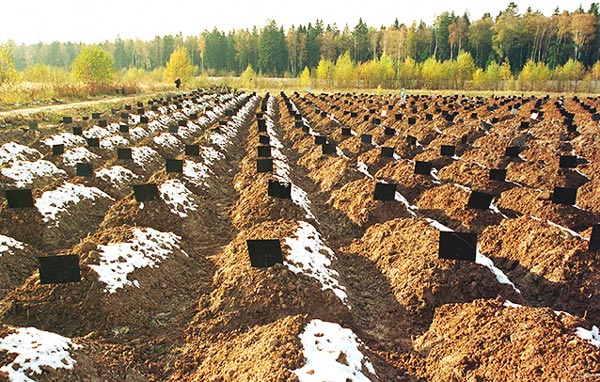
Photo: Alexander Fomin – Perepechinskoye Cemetery. one of the largest in the Moscow region, located on the 32nd kilometer of the Leningradskoye Highway.
The unclaimed body will rest in this cemetery for five years. Relatives have that much time for exhumation and reburial, if they still find the money. After 5 years, the body will be dug up and taken to the Nikolo-Arkhangelskoye cemetery in Balashikha. There the body will be cremated and the ashes of the unclaimed body will be stored on a specially designated shelf for another year. If relatives do not take the remains this year, then the ashes will forever be placed in the grave of unclaimed ashes.
We recommend reading the following notes on this topic:
- Dying - so with a passport... Otherwise you will be buried like a homeless person in a common grave
- About unclaimed bodies, interesting findings during autopsies and other questions from the comments - a note from a morgue orderly
- Corpse No. 21449: the story of one posthumous journey
Financial cheat sheet
Let’s look step by step at what payments and where you can receive them after the death of a loved one:
- A federal benefit of 5,946 rubles (the amount as of the beginning of 2020) is available to everyone and can be obtained either from the Pension Fund (if a pensioner has died), or from social security, or from an employer.
- Residents of Moscow are entitled to an additional payment of 11,000 rubles for funeral arrangements. Residents of other regions can find out about additional payments in their cities in social security.
- If the deceased was a military man, firefighter or employee of the Ministry of Internal Affairs, his relatives are entitled to compensation for funeral expenses. No more than 27,016 rubles are reimbursed if the deceased lived in Moscow or St. Petersburg and no more than 19,511 rubles if they lived in other regions.
- Relatives of the deceased can receive the lost pension and wages of the deceased for the current period (last month). You need to contact your employer for your salary and the Pension Fund for your pension.
- If the deceased had deposits in the bank, then you can receive either 6,000 rubles (if the deposit was opened before 1991) or the entire amount through inheritance (for this you need to contact a notary). However, compensation for expenses up to 100,000 rubles. Any funeral organizer can use a bank deposit, even if he is not an heir. To do this, you need to contact a notary at the place of registration of the deceased with your passport, present a death certificate, documents confirming funeral expenses, and his bank account details. Such compensation has priority in the order of payments to debtors and heirs.
- If the deceased died due to the fault of third parties, then his relatives can file a claim not only for compensation for moral damage, but also for compensation for funeral expenses.
- If the deceased had unpaid loans, then it is worth checking with the banking organization for the availability of insurance, which is usually imposed when applying for a loan. This type of insurance is designed to cover the costs of the loan. But perhaps the terms of the insurance contract will include some kind of compensation for funeral expenses. You also need to submit death documents to the bank so that the credit institution stops charging interest on the loan, because if there is no insurance, then reimbursement of debt obligations will fall on the shoulders of the heirs.
Specialized payments upon the death of a close relative
In addition to compensation paid from the federal budget, relatives of the deceased can count on a number of specialized payments made from funds from other institutions.
Life insurance benefits
If the deceased had a voluntary life insurance agreement, then his relatives have the right to contact the insurance company to receive compensation payments.
In some cases, a contract may designate a specific person as a beneficiary. In such a situation, the right to receive payments for an insured event belongs only to the person designated in the policy. Note: if they disagree, the heirs can challenge the terms of the agreement in court.
If the death of a citizen occurs as a result of an accident, members of his family can apply for payments to the insurance company that issued the MTPL policy to the person responsible for the accident.
For deposits in Sberbank
Citizens who, as of June 20, 1991, had a deposit opened in Sberbank can receive compensation for it. In the event of the death of an investor who has not exercised the right to compensation payments, his heirs can do so. The size of the payment depends on the age of the depositor and is:
- Persons born before 1945 inclusive - triple the contribution amount;
- Citizens born in 1946-1991 (inclusive) - double the amount of the contribution.
You can also receive compensation from Sberbank for paying for funeral services if the deceased had a deposit opened in this institution before June 20, 1991. Relatives or other persons who paid for the burial of the depositor are entitled to receive. The amount of the payment depends on the amount of the deposit, but cannot exceed 6,000 rubles.
Payments in the form of unpaid wages, alimony
If the deceased was officially employed, the heirs may receive unpaid wages. Payment is made only for days actually worked. If a citizen does not exercise his right to vacation, compensation for unused rest days is added to his salary. You can receive this compensation within six months after the death of a citizen. To do this, you need to contact the deceased’s employer.
Answers to readers' questions
Even though the process for claiming funeral compensation is simple, there may still be issues that need to be considered.
Are days paid for the funeral of parents?
In the event of the death of close relatives, which include parents, the employer is obliged to provide leave under Article 128 of the Labor Code of the Russian Federation, the maximum duration of which is 5 days. However, it is unpaid and you should not expect wages during this time.
Who is entitled to 3 days for a funeral?
It has already been said above that the employer is obliged to provide short-term leave without pay if an employee’s close relative has died. The duration of a break from work can be up to five days, but this opportunity is only available in the event of the death of close relatives (parents, children, siblings, grandparents).
How to obtain compensation for causing death in criminal proceedings?
If a relative died due to the fault of third parties, it is necessary to file a lawsuit against them in criminal proceedings. The investigation establishes the individuals involved and the degree of their guilt, and the court attaches the civil claim to the case and determines the amount of compensation in the verdict. It can be paid at a time, or a percentage of the convicted person’s income can be charged.
An example from judicial practice
Citizen Kalashnikova (plaintiff) filed a lawsuit in which she indicated that defendants Potapov and Ivanov were guilty of the death of citizen Petrenko (Article 111 “Intentional infliction of grievous bodily harm”). Kalashnikova indicated that she incurred the costs of Petrenko’s burial and asks the court to recover from Potapov and Ivanov the amount she spent - 80,701.60 rubles.
Kalashnikova's expenses were:
- 38,341 rubles - contributed to the cash desk of the enterprise LLC SP "Pamyat" for organizing the funeral;
- 6325 rubles - preparation of the body of the deceased;
- 8630 rubles - expenses for the coffin, cross, garland, sheet, pillow, bedspread;
- 1615 rubles - for a sign, bed, napkins, ties;
- 20,000 rubles. — for the manufacture and installation of a tombstone;
- 4200 rubles – for a men’s suit and shirt;
- 500.04 rubles - repair of windows broken by convicts in the apartment of the deceased;
- 90.20 rubles - costs for making copies of documents when going to court.
Having studied the case materials, the court decided to partially satisfy the claim. Since the plaintiff was in charge of organizing the funeral, she has the right to demand compensation for the necessary expenses incurred by her (RUB 80,701.20) for the burial of the deceased from the defendants. However, the amount of the funeral benefit will be excluded from this amount - 5,277 rubles (the amount of the benefit as of 2020). According to the requested certificate from the Pension Fund of the Russian Federation, Kalashnikova received a funeral benefit in the amount of 5,277 rubles.
Therefore, (80701.20-5277.28) = 75,423.92 rubles were recovered from defendants Potapov and Ivanov.
Who does Sberbank of Russia pay for the death of relatives?
If the deceased person had deposits in Sberbank that were opened before June 20, 1991 and were valid on that date, the bank will pay the relative 6,000 rubles in accordance with Law 73-FZ “On the restoration and protection of savings of citizens of the Russian Federation.”
If there were less than 400 rubles in the savings book, then the amount is multiplied by 15 (for example, 300 rubles turns into 4,500 rubles in compensation). For larger savings, a fixed amount of 6,000 rubles is issued. To receive a funeral payment, you only need the death certificate of the depositor.
If the deceased had a deposit opened after 1991, then the heirs can receive money from the account either on the basis of the deceased’s will (he had to draw up a special document in the bank during his lifetime), or with the help of a notary, who must be contacted no later than 6 months from the day of death of the investor. The same applies not only to Sberbank, but also to any other bank in the Russian Federation.
Is it possible to obtain a debt on the salary or pension of a deceased person?
If there are debts to the deceased from the employer or pension fund, a close relative of the deceased may receive money. In addition to the salary, an amount for unused vacation is also issued. You need to contact your place of work.
If the pensioner did not manage to receive the last pension, then relatives have the right to apply for its payment, but no later than 6 months from the date of death of the pensioner.
You need to contact the Pension Fund and provide there:
- Death certificate;
- Documents confirming relationship with the deceased (marriage certificate, birth certificate);
- Documents confirming cohabitation (extract from the house register);
- Application for the issuance of a lost pension.
What payments are due upon the death of a disabled pensioner?
If the pensioner was disabled of any group, upon his death the relatives will receive a standard benefit of 5,946 rubles (plus regional allowances). However, instead of this amount, you can choose a social funeral, which does not require minimum additional payments. In the latter case, a tombstone costing up to 3,200 rubles is also made at the expense of the state.
Where can I get a burial certificate?
To receive a funeral benefit, you will need a certificate stating that the burial was made. It can be issued at the cemetery administration, or, if there is none, at a specialized funeral service created by the local government.
How to receive compensation for the funeral of a WWII veteran?
If a WWII veteran or military pensioner has died, you should contact the military registration and enlistment office or the social security department. Documents confirming the death of the veteran, his documents and other papers mentioned above are submitted there.
In any case, the task of burial falls to the War Memorial Institution, which purchases the coffin and wreaths, pays for the transportation of the body, and also provides an honor guard and orchestra. At the same time, the state pays for the monument with the badge of honor.
Survivor's pension
If family members of the deceased were fully dependent on him, then they can apply for accrual of pension benefits in connection with the loss of a breadwinner. The benefit can be assigned to the following categories of citizens:
- Children (natural and adopted). The benefit is assigned until the child reaches 18 years of age, and if he is a full-time student, then until 23 years of age.
- For wives/husbands if they have reached retirement age or have a confirmed disability.
- Parents of the deceased who have reached retirement age.
- Brothers, sisters and grandchildren who have disabilities and have not reached the age of majority.
- Citizens raising minor relatives of the deceased who are entitled to a survivor's pension.
Information: adopted children can count on receiving a pension if they were in the care of the deceased for at least 5 years.
If it is proven in court that any of the close relatives who were dependent on the deceased committed a criminal offense that resulted in the death of the breadwinner, then this citizen is deprived of the right to receive this benefit.
When and where to contact
A citizen can apply for a survivor's pension at any time after receiving the right to receive this payment. The application can be sent to:
- To the Pension Fund at the place of residence;
- To the multifunctional center (MFC);
- By mail.
The application can be submitted personally or through a proxy, as well as through your employer.
Citizens living in the territory of another country and who do not have registration in Russia must apply to the Pension Fund of Russia at the address Moscow, st. Shabolovka, 4.
List of required documents
To qualify for a survivor's pension, you will need to provide the following package of documents:
- Statement.
- Passport of a citizen of the Russian Federation or birth certificate (for children under 14 years old).
- Death certificate of a citizen.
- Documents confirming the relationship with the deceased: birth/adoption certificate, marriage certificate.
- Papers confirming periods of work and other insurance periods.
- Other documents, if necessary to confirm additional circumstances.
Read also: Taxes when selling an apartment received by inheritance
If an incomplete set of documents is provided, the applicant will receive explanations about the missing papers. If he provides them within 3 months, then the date of application for a pension will be considered the day the application was submitted.

